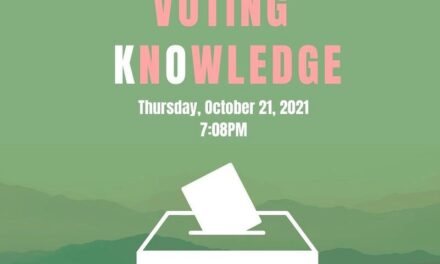On April 9, NC State’s Black Student Board (BSB) hosted a panel with Black professionals called “Pathways to Success: Black Career Empowerment Panel” at Talley Student Union’s Coastal Ballroom. The event gave students a chance to connect with and learn from Black professionals. The BSB’s Instagram account advertised the event alongside other
Pan-African Week events.
Four panelists attended: Dr. Paula Gentius, Chief of Staff and Secretary at NC State, Dr. Jameco McKenzie, the Director of Multicultural Student Affairs at NC State, Deja Perkins, a third-year PhD student studying Geospatial analysis and CEO of Naturally Wild LLC and Alliyah Floyd, the Assistant Director of Students Programming and Engagement at NC State.
The Instagram post drew several students to the event, including Alexis Crichlow, a third-year Biology major at NC State.“I wasn’t exactly sure about life after college, and one of the things in the caption they said they would discuss about career options and stuff that they did after they graduated,” said Crichlow.
The panelists started by answering a series of questions from the BSB Instagram. The questions ranged from the importance of lifelong learning to advice for Black professionals with imposter syndrome.
The first topic discussed was the skills necessary to succeed in the workplace. Dr. Gentius said professionals must be “resilient, responsive, and knowledgeable.” She advised attendees to do everything they can in their careers, even if they aren’t sure they can.
Panelists also discussed the importance of networking. Floyd spoke about the importance of new professionals using Linkedin, carrying a business card and using word-of-mouth to advance their careers. Perkins agreed, saying, “Your network is your net worth.”
Another question from Instagram asked about the importance of a work-life balance. Floyd stressed the importance of finding a balance, saying that you need to develop a balance now so you don’t burn out later. Dr. McKenzie added that one of the most important parts of keeping a balance is understanding that there will be short and long days and that you need to rebalance your time based on what happens in your life.
Perkins built off of this, saying that it’s important to rest physically, mentally and emotionally. She said that as a grad student, it’s easy to get stuck behind a computer all day. However, she reminded us that “Your value is not just your work.”
Someone also asked about strategies for Black professionals working in predominantly white spaces. Dr. Gentius said that Black professionals need to know that they are valued, and they need to move on if they aren’t. Dr. McKenzie agreed with this, saying professionals in this space should also ask questions and, when hearing questions, need to remember that everyone has an opinion, but it isn’t always informed.
Crichlow said the panelists had plenty of helpful advice, saying “I took a lot of notes on things, but there was a lot of quotable stuff, like learning every day and then saying no today so you can say yes tomorrow.”
When asked about standout parts of the event, Crichlow said, “They also prioritized knowing your worth and knowing your value and that you don’t have to say yes to every opportunity that comes your way and that you’ll also get a lot of no’s when you apply to things too, and that was like, a good thing to hear.”
After the Instagram questions, the crowd was allowed to ask the panelists questions, one audience member asked when the panelists knew their career and degree goals and how to find theirs. While the four panelists all had their own experiences to share, they all pushed the same idea: that it’s okay not to know your career goals. Perkins said that pivoting is okay and that students should look for career fields where they can be happy.
Floyd and Dr. McKenzie said that taking opportunities like job shadowing and internships can help students find what they want to do.
It was a consistent theme throughout the panel: that while students need to work hard, make connections and build essential skills, they also need to find what works for them, in their careers and lives.



